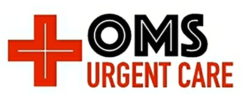Here are some questions and answers about the Covid-19 Antibody testing, to help you make the right choices during this difficult time.
COVID-19 Frequently Asked Questions (FAQs)

COVID-19 Antibody Testing FAQ
This test is a screening to check for a type of “antibodies” in one’s blood as a result of past or recent exposure to the virus that causes COVID-19 disease. When one is infected by a virus like COVID-19, the body develops “antibodies” to fight against the infection.
It looks for the development of antibodies (in built defenses) in the test patient to the COVID 19 virus
The COVID-19 Antibody testing is used to check if one has been recently exposed to the COVID-19 virus and to determine if once has developed antibody from being exposed to the virus.
The COVID-19 Live Virus Testing is used when one is experiencing symptoms associate with COVID-19 and are certain one has been exposed to someone who has been diagnosed positive with COVID-19 disease.
No. The two tests look for two different results.
This test might be helpful if you:
If you have had a positive test for COVID-19 for at least 10 days and would like to know if your body has developed antibody against the virus for reinfection.
At any given time with a minimum of 2 week intervals if previous tests have returned negative showing no immunity
Many major insurance covers COVID-19 testing, please contact your insurance provider to verify.
Yes. You will only need to call our clinic to schedule testing.
Approximately 15 mins from when the test is ran.
This is a one-time testing. Individual can choose to repeat this test as recommended by their physicians, or as needed. Since COVID-19 is a very new virus found, little research has been completed regarding how long antibodies stay in one’s body after it has been developed, repeat test might be needed to ensure antibodies still exist. Since antibodies only develops after one has been exposed to the virus, if the individual has never been exposed, antibody would not be found, hence repeat test might be needed if one feels he/she might have been exposed to COVID-19 virus at any point.
It means you have not developed any immunity or antibodies against the virus to prevent reinfection.
This means you have recently (between 10-21 days) been exposed to COVID-19 virus and your body has developed antibodies against the virus to prevent reinfection by definition. This needs to be confirmed by a repeat test to make sure it isn’t falsely positive and current CDC guidelines suggest because it’s a new virus it is unclear if immunity means prevention of reinfection
This means you have NOT recently (between 10-21 days) been exposed to COVID-19 virus but your body has developed antibody against the virus from previous exposure to prevent reinfection by definition but CDC guidelines suggest “although serologic tests should not be used at this time to determine if an individual is immune, these tests can help determine the proportion of a population previously infected with SARS-CoV-2 and provide information about populations that may be immune and potentially protected”.
This means you have recently (between 10-21 days) been exposed to COVID-19 virus but your body has not developed the long term antibody needed to fight against the virus to prevent reinfection by definition
Minimum of about 14-day intervals.
Yes, this is very possible with these tests regardless of advertised sensitivity and specificity stated by the manufacturer so repeat testing is always recommended at a later date
No, it’s not possible. Patients can only develop antibody to the virus once they have been exposed to the virus. It is not inborn naturally or inherited
Sensitivity is 98.9% and specificity is 97.6%
No, it is authorized by FDA.
It determines development of an immune response and antibodies which by definition refers to development of immunity by per CDC it is still too early to tell if these antibodies prevent reinfection as this is a new strain of the virus
No, it is not needed.
